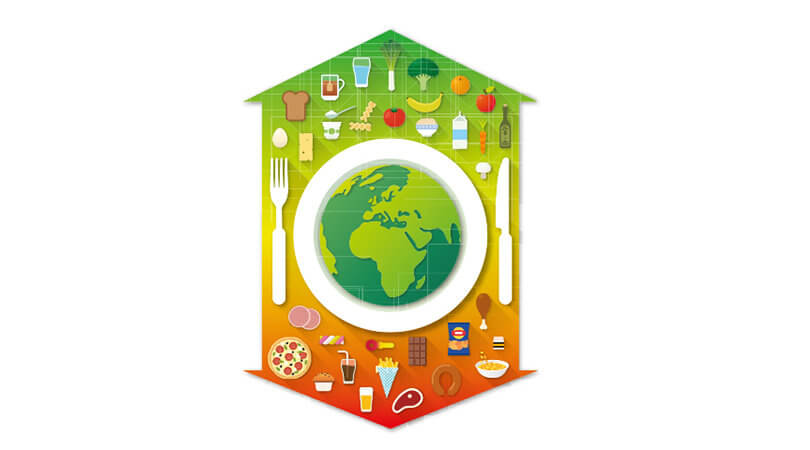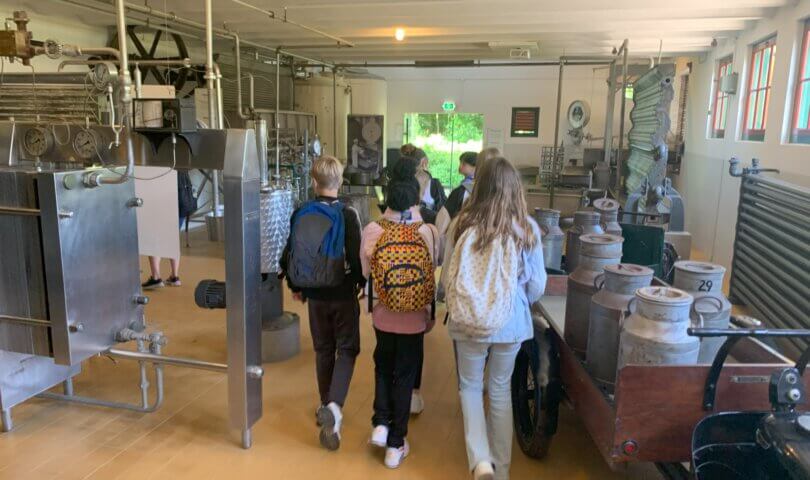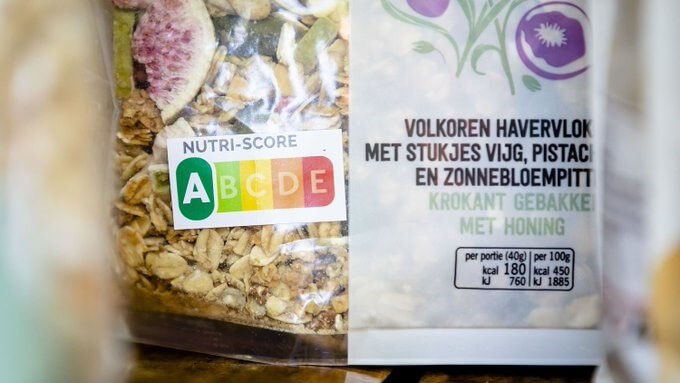

Nutrition
News overviewEat more sustainable and healthy food? Choose for Dutch cuisine!
‘Eat less animal and more plant-based food’ is one of the recommendations in connection with eating in a more environment-friendly way. However, eating more sustainable food is more complex than we often think. New research shows that eating fewer animal products will not always decrease the ecological footprint. Actually, more environmental benefit can be gained by eating less and healthier food that is produced nearby.
Ecological footprint related to food patterns
What is the ecological footprint of what we eat? Will this be reduced by less meat or more exotic fruit? Is it useful to consume less dairy? And how can we make our eating pattern sustainable and healthy at the same time? Nutricon studied these and other questions by order of the Dutch Dairy Association. The nutritional consultancy bureau Nutricon calculated the ecological footprint of various food patterns and the environmental impacts of the 10 Wheel of Five daily menus of the Netherlands Nutrition Centre.
Optimeal® and study approach
Nutricon used the Optimeal® program, developed by Blonk Consultants and the Netherlands Nutrition Centre, for all calculations. They studied the effect on the ecological footprint of the food pattern when replacing certain products by others. Here one important precondition was that the food pattern still had to be healthy and provide all nutrients that people need after the replacement.
Most environmental benefit
The calculations showed that eliminating meat from the diet may potentially lead to the largest environmental benefit. Avoiding dairy does not yield any environmental benefit. The products that can replace meat have a smaller ecological footprint than the replacement products for dairy. Major changes in the food pattern, such as avoiding meat, may reduce the impact on the environment by almost 40%. Eating less has a great effect on a number of people as well. When a man who eats too much decides to eat less and follow the recommendations of the Netherlands Nutrition Centre, he can reduce his CO2 emission by an average of over 40%.
‘I love Holland’ [I love Holland] smallest environmental impact
It is surprising that from the 10 daily menus of the Netherlands Nutrition Centre the ‘Ik hou van Holland’ [I love Holland] menu has the smallest impact on the environment, as this menu also contains meat and dairy. The good score is a result of the products being produced in the Netherlands. Daily menus with a lot of vegetables and fruit can also have a great impact on the environment. This is also shown by the fact that the ‘Taste the sun’ menu of the Netherlands Nutrition Centre is the least sustainable, because it contains a lot of exotic fruit. People who want to eat more vegetable-based food, can best eat more vegetable products from Dutch origin. The study also shows that half of the Wheel of Five daily menus given by the Netherlands Nutrition Centre as examples of healthy food are less sustainable than the average food pattern (according to the Voedsel Consumptie Peiling [Food consumption assessment]) in the Netherlands.
Best regimen for more sustainable food
A number of simple conclusions can be drawn from the study conducted by Nutricon. For a more sustainable food pattern one can best follow the regimen given below:
- Eat less
- Eat less (red and processed) meat
- Drink less soft drinks and alcoholic drinks1
- Eat fewer extras, such as candy and snacks2
- Eat fewer processed foodstuffs2
- Eat more bread
- Eat more vegetables grown in the Netherlands3
- Keep dairy consumption at the present level.
Reference
- Wat ligt er op ons bord (2017) [what do we eat]. RIVM report 2016-0200.
- Assumption of researchers, see article ‘Hoe verkleinen we de ecologische voetafdruk van ons bord?’ [How do we reduce the ecological footprint of our food] in Voeding Magazine 1, March 2017, p15.
- Milieubelasting van de voedselconsumptie in Nederland (2016) [Environmental impact of the food consumption in the Netherlands]. RIVM report 2016-0074.
More research and everything in perspective
Additionally, the researchers concluded that the environmental data of many foodstuffs are missing. We particularly do not know the CO2 emission or the use of water and land for processed, non-basic foodstuffs. Therefore we have to take a critical look at the conclusions from studies into sustainable nutrition published so far, as they have been based on a lot of assumptions. Finally, the ecological footprint of our nutrition must be considered in the correct perspective, for other aspects of our lifestyles are important as well. A holiday by air to South-Africa can undo the environmental effect of eating vegetarian food for a year at one go.
The study of Nutricon was conducted by order of the Dutch Dairy Association (NZO) and was presented in the cover article of Voeding Magazine which was issued on Saturday 25 March.




